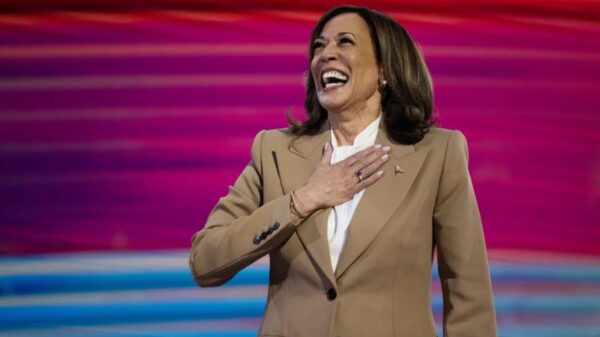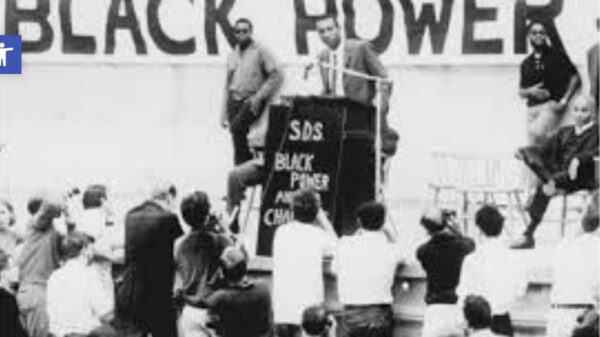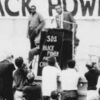
By The Black Wall Street Times
The Black Wall Street Times Editorial Board
- The Black Wall Street Times discovered that hundreds of Klan members worked for the City of Tulsa during the 1920s, the same decade as the massacre.
- Klan organization within the City of Tulsa made it difficult for Black residents to seek and receive justice for the 1921 Tulsa Race Massacre.
Over one hundred years ago, the City of Tulsa was the Ku Klux Klan and Mob in the 1921 Race Massacre. It committed genocide against our ancestors who lived in the Greenwood District, famously known as Black Wall Street. City employees, a police chief and officers, firemen, judges, insurance agents, and two Tulsa city mayors were among the over 1,000 racist marauders who fundamentally destroyed the lives of Black Tulsans during the 1921 Tulsa Race Massacre and onward.
On Monday, May 2, 2022, Attorney Damario Solomon-Simmons and his team of lawyers will prove how the City of Tulsa created a public nuisance that caused the massacre and the continued harm afterward.
The Black Wall Street Times has obtained an original copy of a Ku Klux Klan roster from the same era of the 1921 Tulsa Race Massacre, housed at the University of Tulsa. It lists names and addresses for over 1,000 Klan members across various occupations and City departments, illustrating the Klan’s immense reach in the decade of the Massacre.
Just a few years before the 1921 Massacre, a second wave of the Klan rose across the nation, according to a 2018 report from professor of law Jared A. Goldstein titled, ‘The Klan’s Constitution,” published by Roger Williams University School of Law.
“Like the first Klan, the second Klan articulated its campaign for maintaining racial dominance as a mission to preserve the Constitution. It declared that only those Americans of the nation’s “original stock” are capable of appreciating the nation’s constitutional values, and all other peoples should be excluded because they pose existential dangers to the nation’s constitutional order. The Klan’s declaration that it would defend the Constitution by preserving white power proved to have strong appeal.”
This type of destructive mentality created the seeds of the public nuisance for Black Tulsans and African Americans across the country.

According to Oklahoma state law, “A public nuisance is one which affects at the same time an entire community or neighborhood, or any considerable number of persons, although the extent of the annoyance or damage inflicted upon the individuals may be unequal.”
Notably, the law goes on to say, “No lapse of time can legalize a public nuisance, amounting to an actual obstruction of public right.”
In a Facebook post on April 27, Tulsa Mayor G.T. Bynum appeared to reference the Massacre when he posted, “Tulsa has thrived over more than a century now because early on it became part of our culture that we are a city of neighbors who help one another out in difficult times.”
Black survivors of the Massacre were held in internment camps for months, and Tulsans didn’t magically begin to love their neighbors after the smoke subsided.

City of Tulsa destroyed Greenwood
When Tulsa aided and abetted the burning, bombing and looting of over 30 square blocks of the Greenwood community, hundreds of businesses, and over 1,200 homes in 1921, it didn’t simply interrupt the steady flow of generational wealth accruing in a community one generation removed from slavery. It created a nuisance that has continued for 101 years unabated.
The City of Tulsa’s own data shows Black people and north Tulsans today are more likely to live in poverty and less likely to own a business than their White counterparts.
According to the 1928 Klan roster, members of the Klan included city workers and staff, a mayor, a police chief, an assistant fire chief, judges, court clerks and hundreds more.

When the City of Tulsa’s police force led a campaign of carnage and terror against the residents of Greenwood, that destructive mentality didn’t end in 1921.
Today, City data shows Black youth are more than five times as likely to face arrest than White youth. Black Tulsans of all ages are five times more likely to experience police use of force than Latinx / Hispanic Tulsans.
According to the 1928 Klan roster, numerous police officers, a police chief, and a police commissioner proudly signed their names as members during that period.

When City of Tulsa firefighters refused to put out the blazing embers that were destroying Greenwood’s holy places of worship, they cut off oxygen to the heartbeat of the community.
According to the Klan roster, an assistant fire chief and numerous firefighters were active members of the domestic terrorist group.

When insurance agents refused to accept claims from desperate homeowners and business owners seeking to rebuild, they stunted the financial growth for future generations of Greenwood residents.
According to the Klan roster, numerous insurance agents signed as members during the decade of the Massacre.

And when Greenwood survivors sought restitution in the Tulsa Courts, it was doomed to fail, forcing a century of struggle towards justice. The Ku Klux Klan roster showed both a city and county judge among its ranks.
Public nuisance from 1921 still ongoing
The effects of the Massacre remain apparent today, according to the Human Rights Watch. And the power of the Klan activity in the City of Tulsa during the era of the Massacre can’t be understated.
For example, in 1922, a year after the Massacre, the Klan installed Herman Newblock, a Klan member, as mayor.

A year later, in 1923, the Klan-filled Oklahoma legislature successfully ousted then-Governor Jack Walton who vowed to rid the Oklahoma National Guard of the Klan. According to a Tulsa Tribune article, Gov. Walton had publicly claimed that 90-percent of the Oklahoma National Guard were affiliated with the Klan.


The Tulsa Race Massacre didn’t start because a Black teenage boy bumped into a White teenage girl on an elevator. The seeds for the massacre and destruction of the Greenwood community also known as Black Wall Street had been brewing long before. The fear of urbanization by immigrants and African-Americans migrating from the Deep South into Tulsa was a cause of concern for Whites.
For this reason, Ku Klux Klan enrollment tripled in Tulsa as well as nationally during this period.
Had the Klan not been so powerful in the Tulsa city government, Newblock nor Watkins would have become mayors of Tulsa.
In a way, it was a warning for those who wish to attain political power in the state, and it demonstrated the consequences of opposing the Ku Klux Klan.

After Newblock, George L. Watkins became mayor in 1930 and was also a member of the Ku Klux Klan. The history of Tulsa as an epicenter of Klan activity adds weight to Attorney Damario Solomon-Simmons’s ongoing lawsuit against the City for its continued public nuisance.
Despite Tulsa attorneys claiming Massacre survivors have no standing to sue in court, a Klan roster and newspapers from the time period show the City of Tulsa, including City Fire, City Police, City Mayor, Tulsa Court clerks, Insurance companies, and others were full of Ku Klux Klan members in the 1920s.

The Capitol Riot and Tulsa Genocide share a common theme.
Thousands of White marauders, from every walk of life, took the law into their own hands and used those destructive hands to squeeze triggers, swing weapons, fly planes, and grind Black Wall Street into dust.
Over a thousand people party at a local concert or pack out a high school gym during the playoffs. Over a thousand people can do a lot of things individually, but to do so together takes coordination and execution. And execute they did. That’s all they did.
On Jan. 6, 2021, many of their racist great, grandkids stormed the U.S. Capitol building, attempting to overtake the government the same way their forefathers had done in Tulsa. Under the direction of former Pres. Trump, thousands raided a building and the world lost its mind over the shock and horror that lasted a few hours. It left one intruder dead and many other police officers physically and mentally scarred forever, some even taking their own lives afterwards.
Since Jan. 6, an investigative committee has been formed, and President Trump was twice-impeached. Capitol rioters have been tracked down and sent to prison in an effort to understand the events leading up to what’s widely considered one of the most tragic days in American history.
100 Years of Silence from Tulsa
Yet, for over a century the City of Tulsa, the state of Oklahoma, and the United States of America have watched Black Tulsans get vanquished and repopulated whilst saying nothing and doing even less. Where were the investigations? Who was arrested? What semblance of inconvenience has befell them or their descendants in exchange for our community annihilation?
When the mayor establishes laws, eats lunch with the judge, interviews the police chief, hand-picks the comptroller, and golfs with the school superintendent, he or she can manifest and mobilize their community en masse to achieve a synchronized goal. And nothing bonded and bonds Klansmen like Black suffering.
American society has long considered signs of progress to be the inclusion of Black and Brown folks such as President Obama or S.C. Justice Ketanji Brown-Jackson into racially rigid institutions. Yet what did President Obama do about Tulsa? What can Supreme Court Justice Ketanji Brown Jackson do now? What, if any, response should we anticipate from Vice President Kamala Harris?
Restitution is the only path forward
The systems and those who pull its levers are the ones who killed Black Wall Street in 1921 and inserting a handful of Black people into positions of “power” does little but look good on television for those who have lost their lives and everything they know in Tulsa.
Officials as high as the mayor and common workers like grocers collaborated together to inflict the maximum amount of damage on a community they knew would be unprepared, under-armed, and undeserving of the genocide headed their way.

On summer afternoons throughout the last century white audiences would gather at parks and public places to watch our ancestors be lynched during what they considered “picnics.” That was the culture of the times. And while there would only be one or two racists to yank the rope or kick the chair, the hundreds and thousands of white people eating snacks while a Black corpse swings in the wind will forever be an indictment on their ancestry, not ours.
Yet, the survivors and descendants of Greenwood don’t hold hatred in their hearts. They aren’t seeking vengeance. They’re simply seeking restitution and an acknowledgment from the City that it was among the perpetrators. History proves it. Today’s disparities show it. The City of Tulsa owes the Greenwood community justice and restitution.
Zeke Walker, Mike Creef, Deon Osborne, and Nehemiah Frank contributed to this article.









You must be logged in to post a comment Login